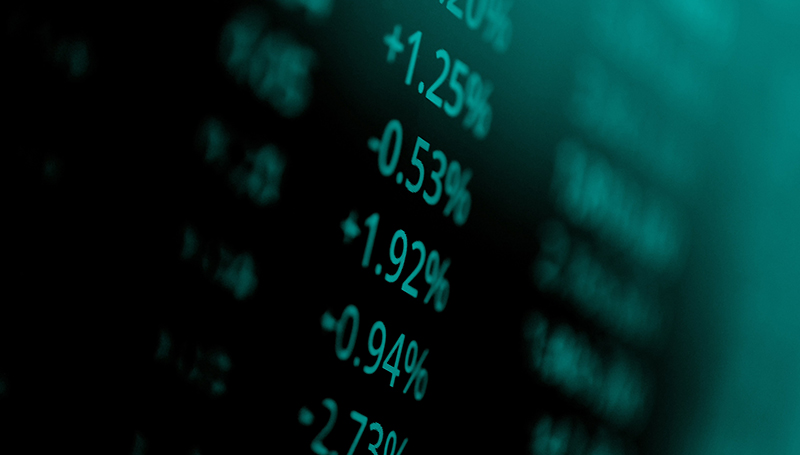

23.03.2020 – Special Report. Next round in the old game: the Turkish lira is plummeting. The Sultan in Ankara has fired yet another central bank chief. In recent months, he had successfully propped up the dwindling currency with higher interest rates. Now the bizarre Erdoganomics is on the agenda again – the bears are sharpening their claws.
Four months of stabilisation
Once again we have to deal with the Turkish lira and the incomprehensible monetary policy in Neo-Ottomania, to say the least. Head of state Recep Tayyip Erdogan dismissed the head of the central bank, Naci Agbal, on Saturday night. The ruler had only appointed him to office last November. During his short term in office, Agbal had raised the key interest rate by 875 basis points to 19 per cent.
Unexpectedly high interest rate hike on Wednesday
But last Wednesday, Agbal broke the camel’s back: The unexpectedly high interest rate hike of 200 points sent the lira soaring. But the head of the central bank had finally made trouble with Ankara. The Erdogan-owned tabloid “Yeni Safak”, for example, raged. But the central bank had no other choice – because inflation in Turkey is galloping. It is at 15.6 percent, the official target value is 5 percent. For the fifth month in a row, the inflation rate had increased, for example because of rising oil prices. Phoenix Kalen of Société Générale applauded the rate move, saying it “will go a long way towards bolstering both retail and foreign investor confidence that the CBRT under Governor Agbal will stay engaged in addressing deterioration in inflation expectations.”
Bizarre Turkish monetary policy
But now the cold shower. While the majority of economists assume that a currency increases in value when interest rates rise because they then get a higher return on their investment, Erdogan sees things quite differently. Contrary to doctrine, the president assumes that it is high interest rates that fuel inflation. In doing so, he confuses cause and effect. The financial blog “ZeroHedge” called this a “bizarro monetary policy”.
The successor even sees the zero interest rate
Agbal’s successor will be Sahap Kavcioglu, a finance professor and former MP from Erdogan’s AK Party. The scholar of the Marmara University has, by the way, already been a frequent columnist for “Yeni Safak”. Kavcioglu also opposes a restrictive interest rate policy – and even considers negative interest rates advisable, as the “Middle East Eye” reported. Listen and be amazed: zero and negative interest rates are usually a means against deflation, intended to force cash-hoarding investors to invest. And they are highly inflationary, which Turkey really does not need.
The trust is gone
Be that as it may: Kavcioglu is the fourth head of the central bank in twenty months. The “Neue Zürcher Zeitung” wrote: “The confidence gained in Turkish economic policy in recent months is gone. Moreover, the Turkish economy has been in crisis for three years. And this despite the fact that the cheaper money in the meantime has at least boosted the construction sector and the Turkish economy has grown by 1.8 per cent, better than expected, despite Corona. Only: foreign capital is still giving the country a wide berth. Now probably more than ever. The unemployment rate is officially 13.4 percent; the real figure is probably closer to 30 percent, according to the publication “AL-Monitor”.
And the treasury is pretty empty. Goldman Sachs estimates that Turkey spent more than 100 billion dollars on support purchases for the lira last year alone. The former finance minister and Erdogan’s son-in-law, Berat Albayrak, was primarily responsible for this. He had resigned in protest against the appointment of the now fired central bank chief Agbal; the international financial community had registered the departure of the son-in-law with relief.
The return of consumption
Our conclusion: Hard times are ahead for the lira. For traders, the new crisis offers enormous short opportunities in the lira. However, you should be aware that the central bank could always destroy shorts overnight with sudden interest rate hikes in the repo market. Or Ankara could use emergency loans – from China and Russia, for example – to buy lira unexpectedly.
Investors will otherwise note the new volte-face with raised eyebrows and perhaps, perhaps decide to invest their capital in a less erratic country after all. Especially since Turkey risks a war with Greece over the exploitation of oil and gas deposits, has an expensive military engagement in Syria and the foreign exchange earner tourism remains stifled because of Corona. A nasty toxic cocktail for the Turkish economy, which looks very much like an economic crisis and, at the bitter end, a currency reform. Bernstein Bank is keeping an eye on the situation for you – we wish you successful trades and investments.
Important Notes on This Publication:
The content of this publication is for general information purposes only. In this context, it is neither an individual investment recommendation or advice nor an offer to purchase or sell securities or other financial products. The content in question and all the information contained therein do not in any way replace individual investor- or investment-oriented advice. No reliable forecast or indication for the future is possible with respect to any presentation or information on the present or past performance of the relevant underlying assets. All information and data presented in this publication are based on reliable sources. However, Bernstein Bank does not guarantee that the information and data contained in this publication is up-to-date, correct and complete. Securities traded on the financial markets are subject to price fluctuations. A contract for difference (CFD) is also a financial instrument with leverage effect. Against this backdrop, CFD trading involves a high risk up to the point of total loss and may not be suitable for all investors. Therefore, make sure that you have fully understood all the correlating risks. If necessary, ask for independent advice.
